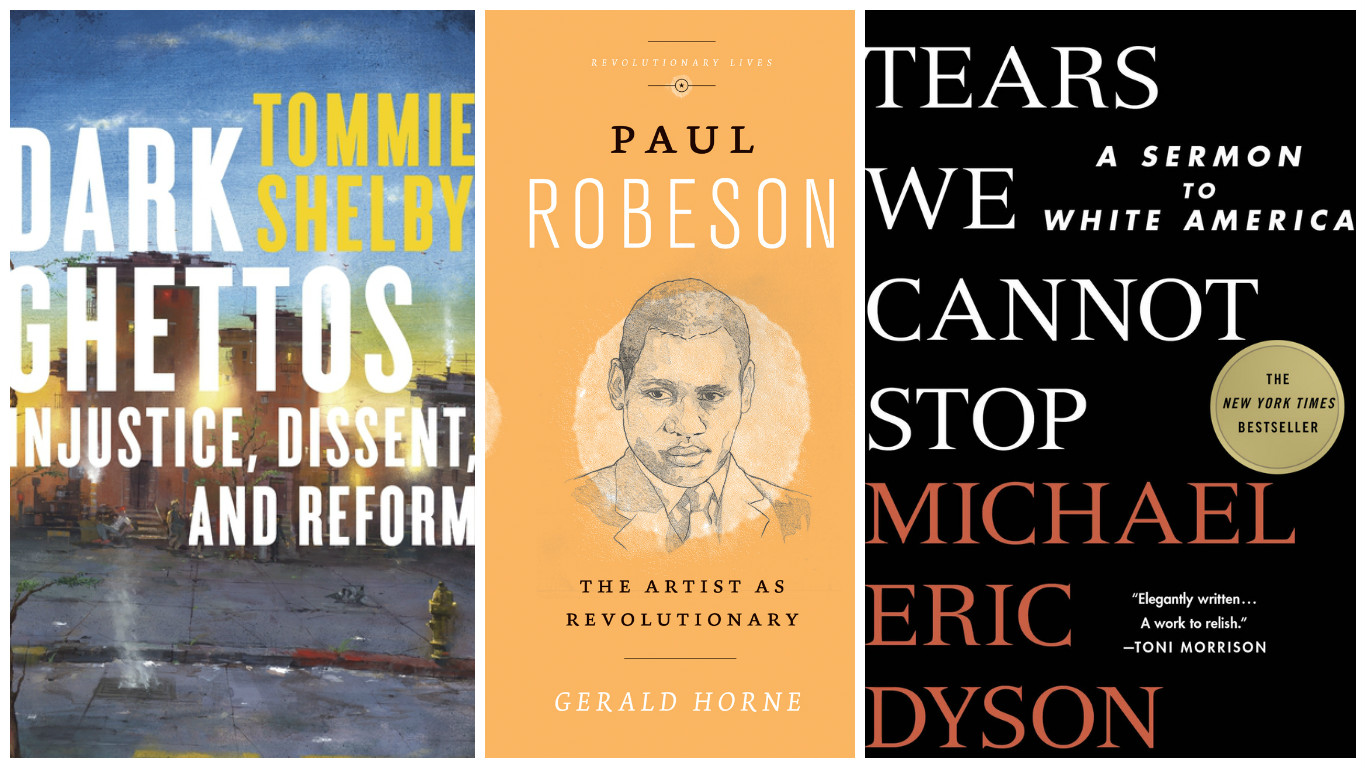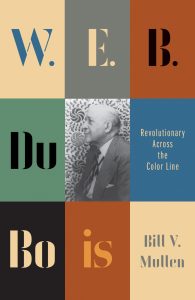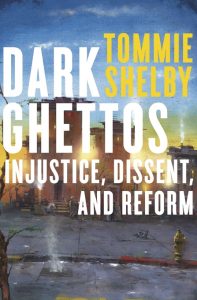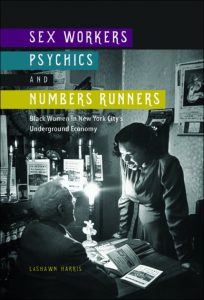Black History Month Book Giveaways from Black Perspectives

In celebration of Black History Month, Black Perspectives will be giving away free books to our readers during the month of February. All new and current email subscribers will automatically be entered into the weekly drawing. If you are already a subscriber, you are already entered. Not a subscriber? Enter your email address here, and you’ll be entered to win each week. We will randomly select winners at the end of each week and make an announcement on our social media accounts. Winners will also receive an email notification. Please follow us on Twitter (@BlkPerspectives) or like our organizational page on Facebook for frequent updates. See below for a sampling of the books we will be giving away during Black History Month.
 Gerald Horne, Paul Robeson: The Artist as Revolutionary (Pluto Press, 2016)
Gerald Horne, Paul Robeson: The Artist as Revolutionary (Pluto Press, 2016)
A world-famous singer and actor, a trained lawyer, an early star of American professional football and a polyglot who spoke over a dozen languages: these could be the crowning achievements of a life well-lived. Yet for Paul Robeson the higher calling of social justice led him to abandon both the NFL and Hollywood and become one of the most important political activists of his generation, a crusader for freedom and equality who battled both Jim Crow and Joseph McCarthy. In Paul Robeson, Gerald Horne discovers within Robeson’s remarkable and revolutionary life the story of the twentieth century’s great political struggles: against racism, against colonialism, against poverty—and for international socialism. This critical and searching biography provides an opportunity for readers to comprehend the triumphs and tragedies of the revolutionary progressive movement of which Robeson was not just a part, but perhaps its most resonant symbol.
 Michael Eric Dyson, Tears We Cannot Stop: A Sermon to White America (St. Martin’s Press, 2017)
Michael Eric Dyson, Tears We Cannot Stop: A Sermon to White America (St. Martin’s Press, 2017)
Short, emotional, literary, powerful—Tears We Cannot Stop is the book that all Americans who care about the current and long-burning crisis in race relations will want to read. As the country grapples with racist division at a level not seen since the 1960s, one man’s voice soars above the rest with conviction and compassion. In his 2016 New York Times op-ed piece “Death in Black and White,” Michael Eric Dyson moved a nation. Now he continues to speak out in Tears We Cannot Stop—a provocative and deeply personal call for change. Dyson argues that if we are to make real racial progress we must face difficult truths, including being honest about how black grievance has been ignored, dismissed, or discounted. “The time is at hand for reckoning with the past, recognizing the truth of the present, and moving together to redeem the nation for our future. If we don’t act now, if you don’t address race immediately, there very well may be no future.”
 Diana Ramey Berry, The Price for Their Pound of Flesh: The Value of the Enslaved from Womb to Grave in the Building of a Nation (Beacon Press, 2017)
Diana Ramey Berry, The Price for Their Pound of Flesh: The Value of the Enslaved from Womb to Grave in the Building of a Nation (Beacon Press, 2017)
In life and in death, slaves were commodities, their monetary value assigned based on their age, gender, health, and the demands of the market. The Price for Their Pound of Flesh is the first book to explore the economic value of enslaved people through every phase of their lives—including preconception, infancy, childhood, adolescence, adulthood, the senior years, and death—in the early American domestic slave trade. Covering the full “life cycle,” historian Daina Ramey Berry shows the lengths to which enslavers would go to maximize profits and protect their investments. Illuminating “ghost values” or the prices placed on dead enslaved people, Berry explores the little-known domestic cadaver trade and traces the illicit sales of dead bodies to medical schools. This book is the culmination of more than ten years of Berry’s exhaustive research on enslaved values, drawing on data unearthed from sources such as slave-trading records, insurance policies, cemetery records, and life insurance policies. Writing with sensitivity and depth, she resurrects the voices of the enslaved and provides a rare window into enslaved peoples’ experiences and thoughts, revealing how enslaved people recalled and responded to being appraised, bartered, and sold throughout the course of their lives. Reaching out from these pages, they compel the reader to bear witness to their stories, to see them as human beings, not merely commodities.
 Bill Mullen, W. E. B. Du Bois: Revolutionary Across the Color Line (Pluto Press, 2016)
Bill Mullen, W. E. B. Du Bois: Revolutionary Across the Color Line (Pluto Press, 2016)
Born just five years after the abolition of slavery, W. E. B. Du Bois died the night before Martin Luther King delivered his “I Have a Dream” speech. In the many decades between, Du Bois contributed as much to the political and social advancement of African Americans as any other figure. This book offers an accessible brief introduction to the life and times of Du Bois. It takes in his many achievements, such as being the first black man to earn a PhD from Harvard and co-founding the NAACP, and sets them alongside the seismic political changes of the twentieth century—many of which Du Bois weighed in on, including anti-imperialist and anti-colonial struggles across Asia and Africa. Bill V. Mullen reveals a Du Bois who was focused not just on the immediate question of African American rights, but also took up the question of socialism, the rise of communism, and the complicated interrelationship of capitalism, poverty, and racism. The picture that emerges here is of a powerfully original thinker, fiercely engaged with the political, economic, and social questions of his day never letting up in his struggle to change the world for the better.
 Tommie Shelby, Dark Ghettos: Injustice, Dissent, and Reform (Harvard University Press, 2016)
Tommie Shelby, Dark Ghettos: Injustice, Dissent, and Reform (Harvard University Press, 2016)
Why do American ghettos persist? Decades after Moynihan’s report on the black family and the Kerner Commission’s investigations of urban disorders, deeply disadvantaged black communities remain a disturbing reality. Scholars and commentators today often identify some factor—such as single motherhood, joblessness, or violent street crime—as the key to solving the problem and recommend policies accordingly. But, Tommie Shelby argues, these attempts to “fix” ghettos or “help” their poor inhabitants ignore fundamental questions of justice and fail to see the urban poor as moral agents responding to injustice. Drawing on liberal-egalitarian philosophy and informed by leading social science research, Dark Ghettos examines the thorny questions of political morality raised by ghettos. Should government foster integrated neighborhoods? If a “culture of poverty” exists, what interventions are justified? Should single parenthood be avoided or deterred? Is voluntary nonwork or crime an acceptable mode of dissent? How should a criminal justice system treat the oppressed? Shelby offers practical answers, framed in terms of what justice requires of both a government and its citizens, and he views the oppressed as allies in the fight for a society that warrants everyone’s allegiance.
 LaShawn Harris, Sex Workers, Psychics, and Numbers Runners: Black Women in New York City’s Underground Economy (University of Illinois Press, 2016)
LaShawn Harris, Sex Workers, Psychics, and Numbers Runners: Black Women in New York City’s Underground Economy (University of Illinois Press, 2016)
During the early twentieth century, a diverse group of African American women carved out unique niches for themselves within New York City’s expansive informal economy. LaShawn Harris illuminates the labor patterns and economic activity of three perennials within this kaleidoscope of underground industry: sex work, numbers running for gambling enterprises, and the supernatural consulting business. Mining police and prison records, newspaper accounts, and period literature, Harris teases out answers to essential questions about these women and their working lives. She also offers a surprising revelation. Harris argues that the underground economy catalyzed working-class black women’s creation of the employment opportunities, occupational identities, and survival strategies that provided them with financial stability and a sense of labor autonomy and mobility. At the same time, Harris shows, urban black women strove for economic and social prospects and pleasures, and in the process experienced the conspicuous and hidden dangers associated with newfound labor opportunities.
 Sohail Daulatzai, Fifty Years of The Battle of Algiers: Past as Prologue (University of Minnesota Press, 2016)
Sohail Daulatzai, Fifty Years of The Battle of Algiers: Past as Prologue (University of Minnesota Press, 2016)
The Battle of Algiers, a 1966 film that poetically captures Algerian resistance to French colonial occupation, is widely considered one of the greatest political films of all time. With an artistic defiance that matched the boldness of the anticolonial struggles of the time, it was embraced across the political spectrum—from leftist groups like the Black Panther Party and the Palestine Liberation Organization to right-wing juntas in the 1970s and later, the Pentagon in 2003. With a philosophical nod to Frantz Fanon, Sohail Daulatzai demonstrates that tracing the film’s afterlife reveals a larger story about how dreams of freedom were shared and crushed in the fifty years since its release. As the War on Terror expands and the “threat” of the Muslim looms, The Battle of Algiers is more than an artifact of the past—it’s a prophetic testament to the present and a cautionary tale of an imperial future, as perpetual war has been declared on permanent unrest.
Copyright © AAIHS. May not be reprinted without permission.
Thank you! For this *great* and kindly, generous idea:
a warm way to spread farther our knowledge about these books and their subjects,
and also, for a very welcome chance to win something so valuable against relatively decent odds!
Great book list!!
I’m in the running.
I’m eager to open these books from exemplary writers.
I just subscribed! So how do I enter the giveaway?
Very glad to see the book about Paul Robeson included here. Overall great choices.